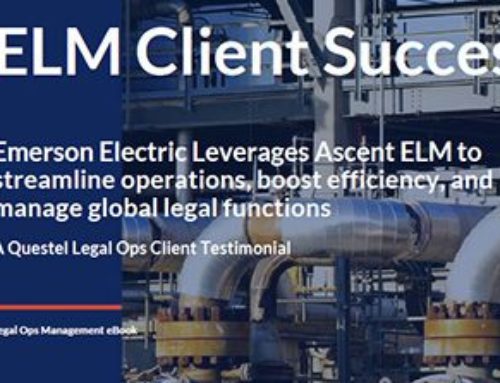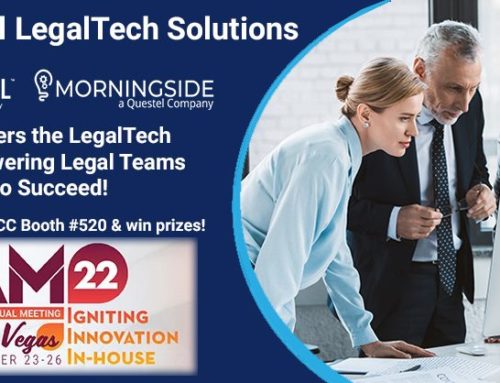 As the volumes of electronically stored information (ESI) climb at a staggering rate, the push for advances in legal technology is struggling to keep up. Typically, technology drives change, but in the world of electronic discovery, technology has created a problem that requires other technology to solve it. Essentially, technology makes creating information easier now than ever before, and its duplication has created the current information monster known affectionately as “Big Data”. One solution is technology assisted review (TAR, for short).
As the volumes of electronically stored information (ESI) climb at a staggering rate, the push for advances in legal technology is struggling to keep up. Typically, technology drives change, but in the world of electronic discovery, technology has created a problem that requires other technology to solve it. Essentially, technology makes creating information easier now than ever before, and its duplication has created the current information monster known affectionately as “Big Data”. One solution is technology assisted review (TAR, for short).
How legal technology evolves
The constantly shifting ESI environment we work in necessitates the need for more innovative technology to harness the data once it is created. The purposes of legal technology are quite simple; increase efficiency and decrease cost. As technology continues to evolve, the innovations adhere to this model. One of the newest additions to the legal technology toolsets boasts the ability to press the “fast forward” button on document review times, place a much lower cost burden to the client, all the while decreasing the margin for error associated with the review process. Finding solutions that lower the cost of the EDRM component that accounts for over 70% of any litigation is a huge benefit. However, this type of power elicits two questions right from the onset: Is this technology ready for primetime use, and more importantly, are we ready for it?
The purpose of TAR
Technology-Assisted Review (TAR) gives attorneys and reviewers the capability to evaluate a document set for relevance on an established issue based on a sample set completed by a human reviewer. Essentially, a human reviews a set of the documents and the software “learns” how the reviewer codes the data of each document regarding its relevance on an issue. Once it has enough sample data, it can effectively sort, code, and categorize the remaining data within 85-99% accuracy. As the sample size grows, the accuracy of the program also increases. The software can then “review” the rest of the documents in the set coding for everything the human reviewer can code, and in recent tests, to a higher degree of accuracy than the human reviewers.
How TAR meets eDiscovery’s future needs
The data being collected overwhelmingly supports TAR software showing consistently that reviewing between 25-30% of the documents has an accuracy of 85-95%. A program that can do the thinking for you is a difficult transition, but worth exploring. Not only that, it can learn quickly and produce results in one-quarter of the time. This alone equates to drastic reductions in review costs… not to mention allowing your attorneys to get back to their core functions. This breed of technology aligns with the Federal Rules of Civil Procedure (FRCP Rule 1), securing the “just, speedy, and inexpensive determination of every action and proceeding,” while complying with Rule 26(g), which requires that, “Discovery is not unduly burdensome and is conducted after a reasonable inquiry.”
The roadblocks to adoption
So why are attorneys and legal professionals hesitant to move forward with this technology? Good question! Much like handing the keys of your car to your child for the first time, and having them drive you on the interstate, a sense of loss of control is a good analogy. It is no surprise there is a backlash to the idea of TAR, but as the technology advances due to the increase in demand for speedier review times and lower costs, there will be more of a need to trust such software.
A bright future for TAR
The more this technology is accepted and used, attorneys and clients will begin to see that the benefits of TAR are not a fantasy, but a reality. We have all seen this in the courts seeking ways to ensure reasonable costs in both time and money. Soon TAR’s applications will be an industry standard, rather than a flashy tool used by the biggest corporations and firms. This technology is affordable today and offered by established experts in this industry. The change is coming, it is just a question of when. To see how this technology can be used effectively to lower costs, just visit our webpage and sign up for a quick demo. Or call us to speak to an eDiscovery expert at 302-798-7500.





